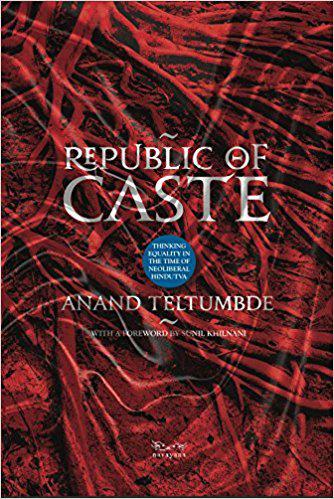
Republic of Caste: Thinking Equality in the Time of Neoliberal Hindutva
Commanding in its scope, revelatory and unsparing in argument, Republic of Caste amounts to a new map of post-Independence India. Anand Teltumbde identifies the watershed moments of its journey: from the adoption of a flawed Constitution to the Green Revolution, the OBC upsurge, the rise of regional parties, and up to the nexus of neoliberalism and hindutva in the present day. Joining the dots between a wide range of events on the ground and the prevailing structure of power, he debunks the pieties of state and Constitution, political parties and identitarian rhetoric, to reveal the pernicious energies they have unleashed and their dire impact on India’s most marginalised people, the dalits.
The exclusion and disempowerment of dalits emerges as intrinsic to India’s republican system, whether expressed through state policies on education, agriculture and land ownership, or the tacit encouragement of caste embedded in both law and political practice. Here, the carrot of reservations comes with the stick of atrocities. As a politics of symbolism exploits the fissile nature of caste to devitalise India’s poorest whilst appropriating their votes, Teltumbde’s damning analysis also shows progressive politics a way out of the present impasse.
Anand Teltumbde is a civil rights activist and a columnist with the Economic & Political Weekly. Among his many books are Dalits: Past, Present and Future, Mahad: The Making of the First Dalit Revolt and The Persistence of Caste: The Khairlanji Murders and India’s Hidden Apartheid. He teaches at the Goa Institute of Management.